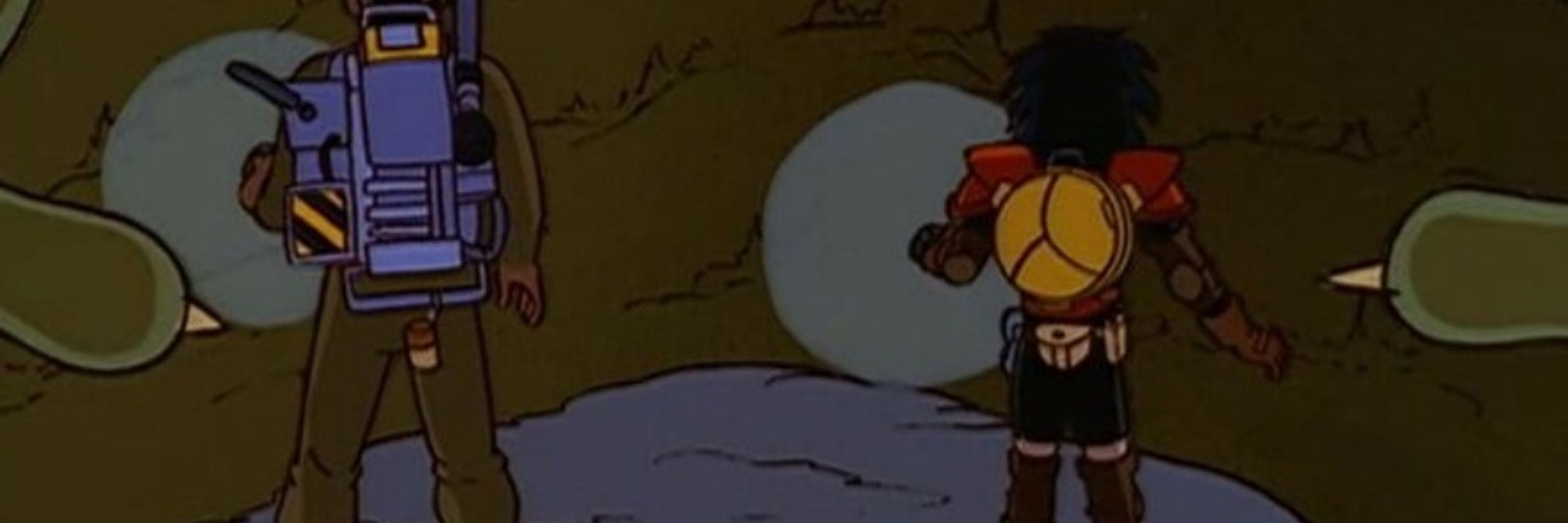Demonschool Review
A Meticulous Invasion
Necrosoft Games' Demonschool proves that retro sensibilities used in the correct way can make for a great and memorable experience. It takes distinct sprite work and adds in a nostalgic early 3D computer-generated animation style to create a horror turn-based tactical RPG that feels pleasantly different. Utilizing many recognizable aspects, including imagery of campy Italian horror films, a progression calendar, and a romantic bond system, Demonschool forges something very distinct. With a charming battle system that focuses on strategic positioning and keeps players thinking, there’s a lot to like in this wonderful indie title, with only the occasional pacing issue due to a meticulous adherence to its calendar system holding it back at all.
Faye comes from a family of demon hunters who have held onto a two-millennium-long prophecy that the world will end in the year 2000 on Hemsk Island. To prevent this apocalypse, and with three months left on the doom timer, Faye joins a university program to gather clues and help at the supposed ground zero. She finds that demons are already eating people or taking them via mysterious portals that continuously pop up everywhere, and complicating matters is only those with demon hunter blood are able to remember the events of the previous day. This leads to moments where the main cast feels like they're in a campy comedy, as there's a lot of banter and funny moments to avoid succumbing to the frustrating despair around them. Meanwhile. the side NPC stories are more harrowing to think of, as those unequipped to defend themselves are picked off one by one. Both horror and comedy are balanced with a level of authenticity that stays consistent throughout.
Faye's burgeoning demon hunter group is given assignments that involve tracking something occult, and which ultimately give clues to the greater mystery. However, this misfit band can’t save everyone; demons keep taking more people away, and the aforementioned memory manipulation means that sometimes their families don’t even know that there’s anyone to miss. The characters combat this feeling of helplessness with a heavy dose of snark that makes them endearing scrappy underdogs that are easy to root for.
[caption id="attachment_179644" align="aligncenter" width="640"] A perfectly normal request that happens all the time to be sure.[/caption]
Demonschool being built around an educational institution makes for an easy use of a calendar system. Monday heralds a new assignment, with a due date of Friday night, or some other situation that presents itself within that same timeframe. Each day is broken into morning, evening, and night, with Friday nights providing the week's climactic boss fight before the weekend affords an opportunity to relax. There's at least one story fight per transitional period during the day, plus a few interesting side quests, accessible during a limited time frame for new abilities, which adds some worldbuilding to their main story arc of the week. New NPC dialogue also appears every Monday, with different characters to speak with in each of the time increments. They only have one line or two, but still add to the creepy ambience of what's happening as they voice eerie blissful ignorance as society breaks down around them. Sometimes this weekly system works against the pacing, as it invents silly reasons to stretch out story beats to artificially fit in the established timeline, even though they should naturally end sooner.
Every morning, mini-games and other interactable objects reset, such as petting a local dog that can grant skill drops or currency, which gives plenty of reasons to explore every area each week. On the weekend, players can visit a van that lends out videotapes of pulp C-list movies that barely anyone remembers, which are fun to discover actually exist in the real world. Reviews of these movies are added to a weekly newsletter to recap the week's events with both straightforward and comedic takes that are fun to glance at.
Party members can all be romanced and since no one gets upset at multiple courtships there's no downside to experiencing each relationship event in a single playthrough. They also have side quests that can lead to useful drops and dig into the backstories and motivations of the other characters in enjoyable enough ways. The eclectic characters of Demonschool have a few interesting personality quirks that make them interesting to get to know. Building bond points come from Faye taking their partner out for a karaoke, cooking, or other mini-game, with success increasing their relationship.
[caption id="attachment_179645" align="aligncenter" width="640"] Who’s proud, and who just groaned at that misspelt pun?[/caption]
Combat happens frequently in Demonschool, yet it finds a way to be incredibly engaging throughout. What is truly impressive is how much mileage comes from the logical ways to approach the varying placement of these demons on a grid. Four party members are selected to go against an initial wave of demons, with more teleporting in each turn. There's a minimum amount that must be defeated before the goal-line unlocks, with one party member needing to be there to close the portal. There are no level-ups, and players have to strategically figure out how to use their character's base stats and skills to defeat the enemies within an optional timeframe to get additional currency rewards. Some characters push enemies, while others pull, stun them, or even just heal party members. It's up to the player to figure out the best way to use their turns effectively. Every party member's action increases their special meter for a powerful ability that typically adds damage or range to attacks.
The combat party has eight action points per turn, and movement is assigned in a planning phase before all actions are executed in a single fluid sequence. Actions are played with a lot of intricate flashing effects and fountains of blood that geyser from defeated foes. Each subsequent action taken by a single party member increases its cost by one, meaning a single character could do three actions in a turn taking six of the eight points. Shifting to the side to complete a move doesn't take any action, but a full move or anything hitting a player or enemy will take up points. There’s a constant shifting puzzle in figuring out the best way to keep everyone alive and take out as many enemies as possible. It is a system that can be complicated to master, but only personal pride is hurt if a turn limit isn't reached or a party member is defeated, with game overs only happening when everyone is dead or during certain conditions in boss fights.
Boss fights take everything learned from regular combat and toss in their own unique wrinkles, making them incredibly thoughtful and fun to figure out. Bosses take on large 3D representations that are invulnerable until certain thresholds are completed, making them able to take damage only on certain turns. They continuously summon minor enemies to cause an inconvenience and consistently keep players on their toes to manage the best ways to stay alive while taking pot shots until they're defeated. Demonschool impresses by continuously finding ways to tweak its basic combat premise into thoughtful puzzles that are always a joy to solve.
[caption id="attachment_179646" align="aligncenter" width="640"] Holy multiplying ghosts! How will the heroes work around this one?[/caption]
Party members each have a unique action, special skill, and a weakness/resistance to one of the three enemy damage types. Resistance means that a party member takes no damage, while a weakness means that they lose two of their three hit points when struck, so it's important to keep aware of foes' damage types. The party has their own damage types used during special attacks, but the damage is higher by default, meaning it has much less impact. Party members start in specific roles, but equipping abilities found in side quests or purchased from the store grants plenty of customization options. These allow support characters to damage enemies or characters can heal from poison damage, to name a few basic ones. There are a few limitations on ability equips to preserve some characters' unique animations and traits, but ultimately it makes every character able to shift into a role that's beneficial to bring into combat. Every character is useable by default, but ability tweaks make it much easier to hit the turn limits or survive tougher fights, helping make Demonschool a tactical dream that is just a joy to tinker with.
Most of the mini-games, such as fishing and cooking, are able to be completed with timed button presses matching the on-screen prompt. Fishing is just relaxing and fun to do for the truly weird designs given to the demonic fish. These games work as effective ways to clear the mind before diving into another combat logic puzzle. As an exception, there is a haunted karaoke mini-game that breaks this mould. Players have a list of three lyrics that need to match a key word, though at times, the mini-game will throw a curve ball. For example, if the lyric has "cat" in it, the choices use the word "catastrophic." These puns and word gymnastics are goofy fun, but can take some time to get used to.
[caption id="attachment_179647" align="aligncenter" width="640"] A screaming pile of televisions dropping possessed students is not typically found in boss fights.[/caption]
The dark and gothic buildings that make up the background battlespaces clash beautifully with the overly saturated colours of the 90s found in their character designs, clothing, and abundance of pixelated red in the geysers of blood. Little flourishes found in a well-done combo or character portrait leave a level of charm that just fits when tied all together. The way that these detailed sprites match with the early video game 3D animations is always a thrill to see. The soundtrack uses base synth disco beats that are easy to groove to and splashes in a haunted orchestral sound that takes that false sense of security and heightens it to a climatic crescendo when it calls for it.
Some specific uses of the environment in combat do led to consistent game crashes in the review build, though there's a frequent autosave, and players also have plenty of manual save slots to make frequent use of. These technical hiccups are being worked on, but are numerous enough in the review version to bear mentioning. The fights and situations where this happens can be annoying if caught off guard, but ensuring only a replay of a singular fight typically means only a couple minutes are lost.
Demonschool has a methodical pacing to it from story to combat that largely works in its favour. There are moments where the story drags out simply to match its established weekly formula, but the charming characters and thoughtful combat more than make up for that shortcoming. It is easy to appreciate the impressive amount of ways that its innovative combat system uses something as novel as strategic positioning. The level of thought and care put into the presentation and gameplay experience in this ambitious title is rewarded in spades for anyone that enjoys an entertaining romp into a strategic campy horror experience.
Disclosure: This article is based on a build of the game provided by the publisher.
The post Demonschool Review appeared first on RPGamer.




























